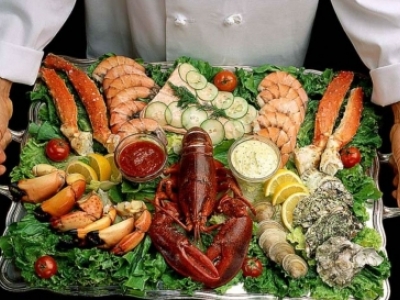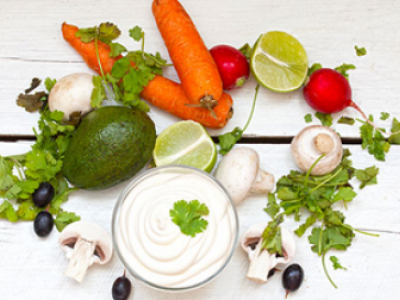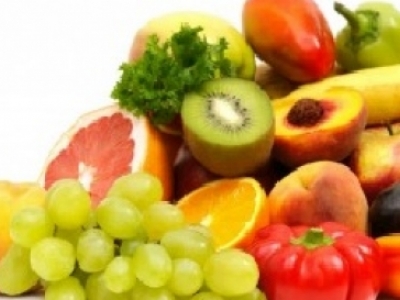Don't miss
Other articles
Almost everyone who has ever been to a cafe, restaurant, canteen at work or gastronomy was tempted by the appetizing look of steaming barbecue, lasagna, ice cream, and had to barely make a choice in favor of a particular dish.
What is so amazing about these blue - green algae and why is it firmly usurped the place of one of the most useful foods? DiningSmart team will gladly tell you all about it.
The truth about the most popular sauce in the world – DiningSmart will tell you everything about mayonnaise in this article!
The daily requirement for vitamins is calculated in milli- or micrograms, butits contribution to our physical and mental well-being is enormous.
The power of food. Philosophical notes on nutrition

Let’s refer to history.
World-famous philosopher, Immanuel Kant, despite all his merits in sociology and philosophy had a weakness for eating cheese and wine almost every day. Hence, his diet was pretty meagre, monotonous, with low nutritional value. He stoically ignored his friends’ exhortations and was stubborn in his allegiances. As a result, he got a “blow” (stroke) after which he lived only a few months. According to his biographer, the last words of the philosopher were “This is good”. Not to mention, that he was talking about wine and bread which had just been served to him for a lunch. A brilliant mind fell in an unequal struggle with eating habits.
Have you ever thought of such questions like: Why do we get so much pleasure during the meal? Why do our eating habits have an all-consuming power over us? Why are the geniuses with an iron will and discipline, who succeed in art, business and other spheres, fall under the bad habits and suffer from obesity?
84 000 human generations lived as hunter-gatherers, whereas only 7 generations lived in the industrial era. And only 2 incomplete generations live in the era of digital technology. In terms of history it is a brief moment, similar to coffee dissolution in the hot water.
It took human brain and body millions of years to be formed, fighting to survive in the lack of food. Living conditions changed a long time ago, however, the deep instincts, tightly stuck in the genes, remained the same. In fact, new habits had been forming on the basis of old connections within the brain. Despite the fact, that now we are clicking the mouse on the amazon.com, it’s important to realize that we are still being led by the instincts of our ancestors who were hunting mammoths in the Amazon forests.
Food is an essential life factor. Not only do we have to eat, but also we have to breathe in order to live. Why are we not so obsessed with oxygen as we are with food? This can be explained by the fact that air is a resource that has always been in the public access at any time. We do highly value food because its obtainment and preservation cost us efforts. The unavailability of certain types of food and their privilege has intensified since the beginning of the capitalism formation and even deeper stratification of society.
Food has become a pronounced emotionally charged desire. Thus, how is the physiological level related to it?
In 1960, Paul MacLean, the Laboratory of the brain and human behavior’s Laboratory (USA) introduced his “triple” brain theory. According to the theory, the brain consists of three equal parts. Each of them is further formed on the basis of the previous one. Additionally, they are closely cooperated and connected directly and inversely.
Physical or reptilian brain - the oldest part. The beginning of its formation has its roots as early as 200 million years ago. The physical brain does explore the outer environment with the senses, provides the body's response, mobilizes us and keeps us alive.
The physical brain is an archive that stores our natural instincts that provide us with basic life functions and automatic behavior. As a matter of fact, such processes as breath, sleep, digestion, heartbeat, education, food search and storage, sex and procreation are resistant to any change, as they play a key role in the preservation of our lives.
The physical brain responses unconsciously and is primarily aimed at maintaining security, eating, sexual satisfaction, social status or the struggle for survival. This part of the brain affects our behaviour with the basic and urgent needs. The power and strengths of the physical brain is based on millions of years of struggle for survival.
Emotional brain is the limbic system which was formed later. We experience emotions, form relationships, take our place in society, and are able to remember due to it. The emotional brain is closely linked with the physical one which lies below it. Emotions help us to maintain life balance and stability, regulate blood pressure and body temperature in response to external irritants.
Imagine there was a chocolate cake with cream and fruit in front of you. The physical brain would immediately take it for a source of nutrients, whereas the emotional brain would immediately remember that it loves cake. At this time, all the good moments and events where you were eating such a cake, starting with your 4-year-old's birthday and ending with the wedding, will pop out in your memory.
The picture was identified as "life-saving".
Rational brain is the so-called cerebral pulp. It is the youngest part of the head brain which provides reasonable - cognitive - function: the ability to think, write, read, organize, solve problems, talk, and perform mathematical functions. Paul McLean called the cortex "the mother of all intentions and the father of abstract thought". It is the cortex that makes us different from all living beings on earth. It allows us to consciously adapt to new conditions, note the differences, dream and cogitate. Equally important, it allows us to summarize the experience and predict the development of events.
Important to realize that within the cortex we make internal conversations and ask ourselves “whether we have to do something or not”. We are able to act and react to difficult situations, think twice before starting any business.
The cortex provides us with the ability to realize the fact of who we are, our place in the hierarchy, and the ability to lead others after us.
The rational information is of a secondary importance; however, there can be no doubt that its role is essential for our actions.
If our physical and emotional brains and emotional identify a chocolate cake as "life-saving", any logical arguments about the calorie, fat, sugar, and absence of hunger will lose with a score of 2: 1.
If, despite all the logical arguments, you still eat too much, then you will have a sense of guilt and regret. If, on the contrary, the rational brain takes over and you can resist the temptation, you will feel emptiness and deprivation. Therefore, you will lose in any case!
As a result, the friendly relationship between our brain and food are being destroyed. Likewise, the minor troubles are being accumulated which results in the fact, that we are no longer able to hear and understand our hunger satiety signals. In this situation, advices on the usefulness of products and their calorie will not help us. They will only worsen the gap between food which preserves life, its overabundance, and human desire to be slim and healthy.
Times change. So do our needs for food. The amount of food around us became greater, and the way of “getting” it also changed. Nonetheless, our brain keeps going in for “hunting” in the stores, doing "ambush" on the refrigerator and storing "mammoth".
Our "golden age" of food is becoming "black," or rather, "thick" age for mankind.
However… with this in mind, why do we need the rational brain?
Due to the rational brain, we are able to deliberately and consistently make a link with food, re-learn how to hear the signals of hunger and satiety. Moreover, it allows the physical brain to calm down through fun and pleasant feeling of emotional brain during meals. What do you think about it?
 |
The author of the article: SVETLANA STRELNIKOVA Doctor, weight loss and nutrition consultant, intuitive eating specialist, health-coach. Worked at the Center for the treatment of metabolic syndrome CDB MC UprDK of RK, the Executive Secretary of the Association of Gerontology of Kazakhstan. Currently lives and works in New Zealand. If you have any questions, please contact Svetlana through the contacts listed below: www.metod10.com https://www.facebook.com/metod10 |
Other articles
Almost everyone who has ever been to a cafe, restaurant, canteen at work or gastronomy was tempted by the appetizing look of steaming barbecue, lasagna, ice cream, and had to barely make a choice in favor of a particular dish.
What is so amazing about these blue - green algae and why is it firmly usurped the place of one of the most useful foods? DiningSmart team will gladly tell you all about it.
The truth about the most popular sauce in the world – DiningSmart will tell you everything about mayonnaise in this article!
The daily requirement for vitamins is calculated in milli- or micrograms, butits contribution to our physical and mental well-being is enormous.









